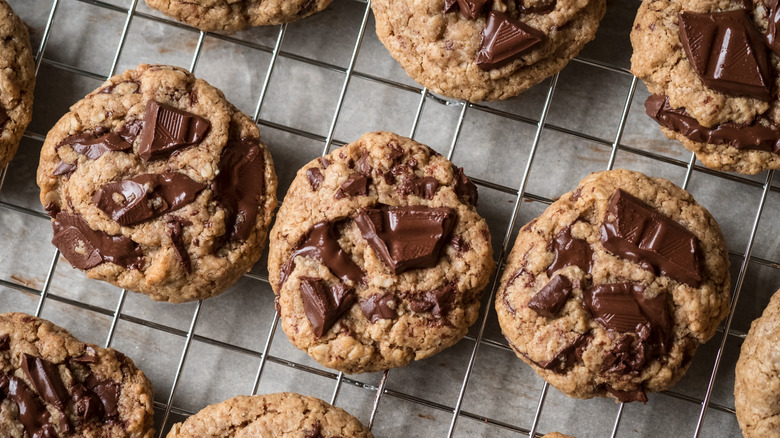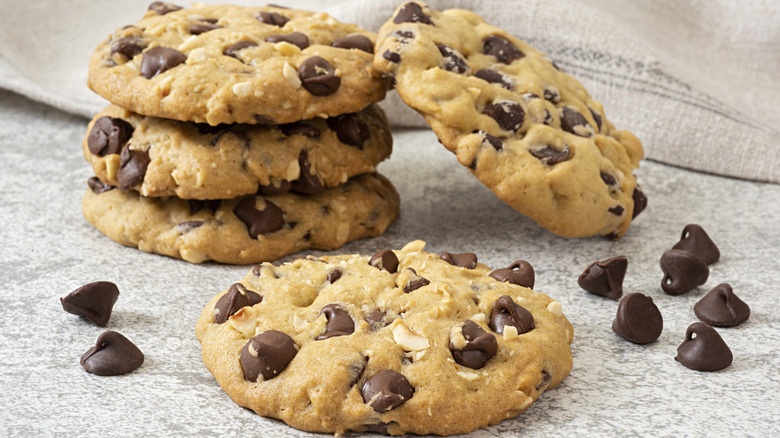The Unexpected Pantry Ingredient You Need For Soft Cookies
While some may think that cookie-making has been perfected as far as methodology and ingredients are concerned, the latter has far more leeway than you may think. In fact, alongside the most common cookie ingredients — those being flour, baking soda, sugar, butter, and eggs — adding cornstarch to your go-to homemade cookie recipe can completely revolutionize the sweet treat, making it much softer and more delectable than you ever thought possible.
The cornstarch method was explained to us by Jerrelle Guy, cookbook author and creator of The Dinner Ritual newsletter. She gave us the inside scoop on exactly why the pantry staple is a great ingredient for creating cookies with a much softer texture. "Adding cornstarch to your cookie dough will soften the overall structure of the cookie by halting some gluten development, which means you'll get a more delicate, tender, melt-in-your-mouth cookie," Guy told us. "Cornstarch also helps absorb moisture which prevents spreading and gives you thicker cookies overall, which give them a softer bite."
As for how to add cornstarch to your cookie recipes, it's quite simple — just mixing some in with your other dry ingredients will grant your cookies the benefits that the ingredient provides. "A common ratio is 1 to 2 teaspoons of cornstarch per cup of flour," Guy explained. However, she also issued a warning: "Just keep in mind that adding too much will remove too much structure and moisture and make cookies that are dry and crumble apart."
More ways to make softer chocolate chip cookies
If you don't want to use cornstarch in your cookies (or don't have any) but you still want to ensure they're both thick and soft, there are other ways to accomplish that consistency. Perhaps the most notable of these methods is swapping white sugar with brown sugar when making cookies, a tactic we here at The Takeout absolutely love to utilize. "You need more moisture for softer cookies," Jerrelle Guy told us, "and brown sugar helps because it has more moisture from the molasses that's been added than white sugar."
Guy noted that adding an extra egg yolk can improve the softness of your cookie, as well. Even buying the right kind of butter and using it in the right form can make a big difference, according to the baking expert. "Using melted butter instead of softened butter means you won't be incorporating any extra air into the batter, leading to a denser, softer cookie in the end," she said. Melted butter will also give a richer flavor and crisper edges.
Alternatively, if you want chewier cookies, you'll want to give them a higher gluten content, meaning the kind of flour you use is absolutely crucial. "Bread flour, which has more protein than all-purpose, can contribute to chewiness by building more gluten," Guy explained.

